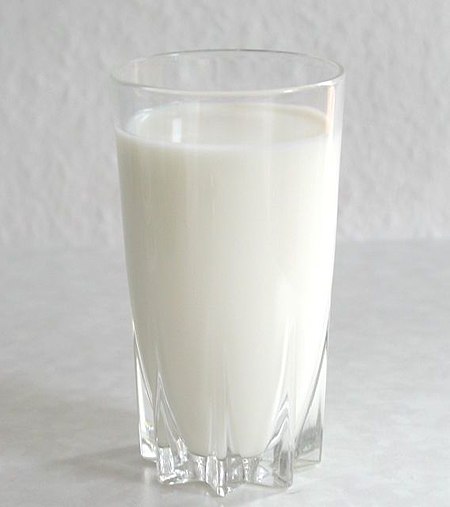I was visiting my neighbour today, so our little daughters could play together, or, as the seem to prefer at this age, play on their own while eyeing each other up suspiciously every now and then, and to take toys and treats away from each other!
We were talking about their diets, and Abby was saying her daughter used to hardly eat anything, it was a battle to get any food into her, even when the granny tried to give her ice cream and other treats, she'd just have a nibble and then walk away from it. Until she talked to a nutritionist who advised her to take her 14 months old daughter off dairy! She was really reluctant to do it, because of all the general advice out there, stressing they have to drink loads of milk. After some deliberation and with a list of other foods containing calcium, she went ahead with it, and could not believe the change it made! within a few days her daughter took to her food, enjoying all her meals and snacks! She suspects the milk and formula was making her feel full or queasy, so she never felt like eating, and now, without, she's got an appetite.
While Emm loves all her food, she does have eczema on her wrists, behind her knees and on her ankles. I'm pretty sure it has to do with teething, as it gets worse whenever she has other teething symptoms, too, but I wonder would taking her off dairy make a difference? I'm generally suspect of messing with babys' and toddlers' diets, but she doesn't actually like to drink milk, so I wonder is that a sign? She does like her milky porridge though, and cheese and yoghurt, and whipped cream (surprise, surprise!)...
We feed her a diet of mostly unprocessed, natural foods, withing reason. Milk alternatives, like soy milk, are very processed, and I'd prefer not to introduce new artificial foods to replace (relatively) natural foods, like milk, but if it improved her eczema, it might be worth it?
I tried to google the topic but the amount of sites from animal activists, calcium supplement manufacturers and old school pediatricians is overwhelming, so I don't know where to get info on calcium content, and also quite importantly, calcium absorption rates, without spending hours researching and copying data into spreadsheets...
I'm worried about her calcium intake, and vitamin D, too, but I wonder how much of that is fueled by dairy council propaganda... Nutrition really is a mine field, once you start thinking about it, taking into account protein intake, vitamin D levels, absorption rates... But at the same time, we all seem to do reasonably well on our less than perfect diets!


Here's some reliable info on vegan sources of calcium:
ReplyDeletewww.tamaraduker.com/calcium-for-the-milk-averse
Unfortunately, most children who do drink dairy and eat cheese still fall short when it comes to calcium. If you're open to a fortified non-dairy beverage of some sort, it may be a good insurance policy. Dried figs, chia seeds, almonds (with skin) and dried prickly pear cactus (if you can find it) are good snacky sources in addition to the cabbage family vegetables. Good luck!
If she doesn't like todrink milk, I'm sure she'd be just fine with water and nautural juice. My girl was not that into milk for a while, but now (due to her day-care) drinks it a lot. I didn't push her, just made she she was still getting liquids, but then I am also still breastfeeding her twice a day.
ReplyDeleteSome grown-ups have lactose intolerance, otehr have milk allergies, so babies are probably the same. YOu could try keeping her on the semi-"digested" milk products she does like (like yogurt & cheese) and just try her for a week without straight milk.
Good luck!
If you go to a kineseologist, they'll be able to tell you what's wrong.
ReplyDeletethanks, everybody! didn't realise almonds had to have the skin on! i've been adding ground almonds to some cake recipes, thinking it would be adding calcium!
ReplyDelete